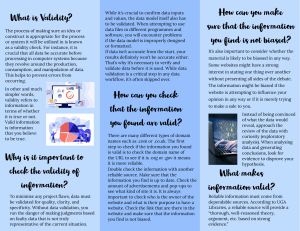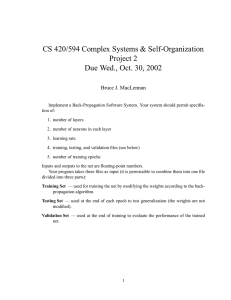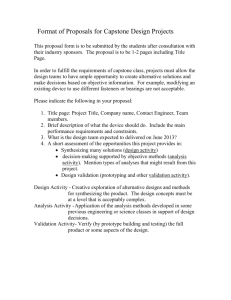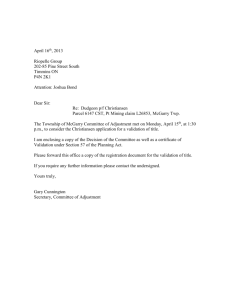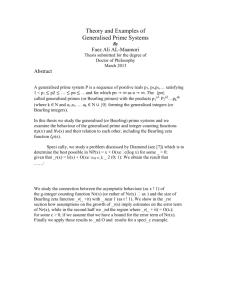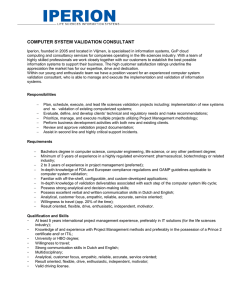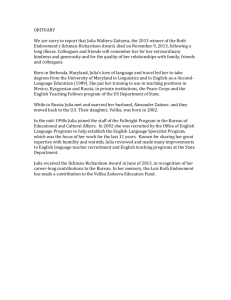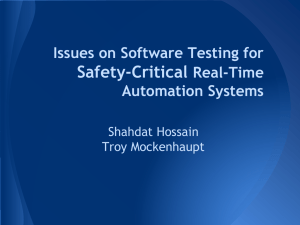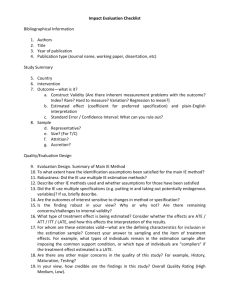How to chose a risk score
advertisement
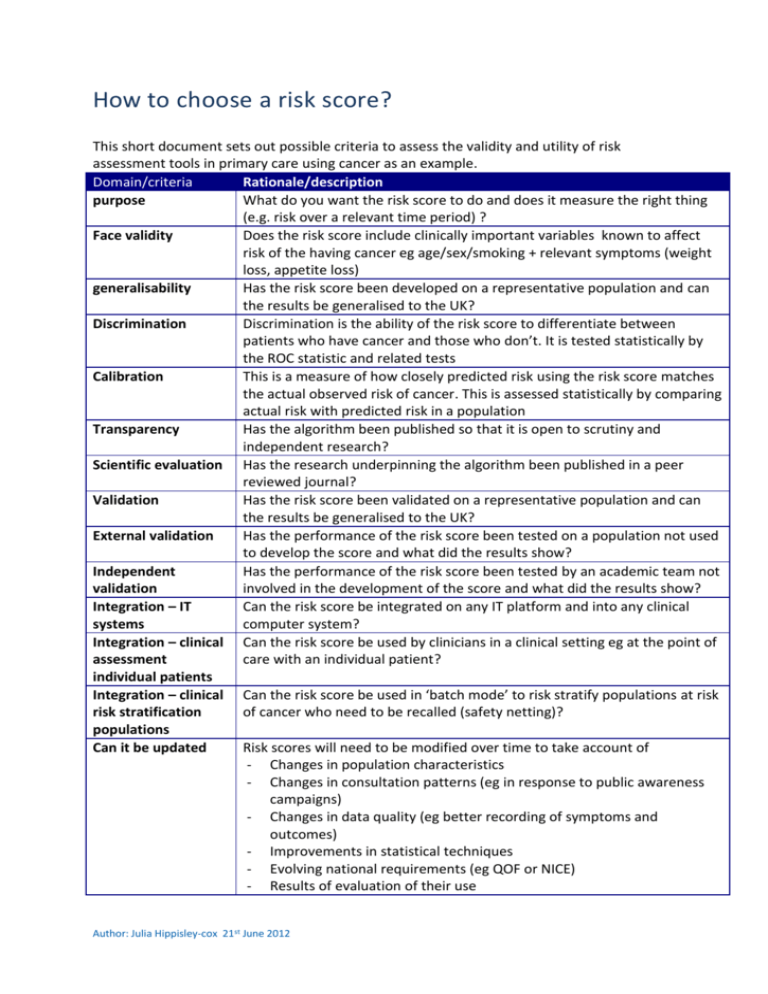
How to choose a risk score? This short document sets out possible criteria to assess the validity and utility of risk assessment tools in primary care using cancer as an example. Domain/criteria Rationale/description purpose What do you want the risk score to do and does it measure the right thing (e.g. risk over a relevant time period) ? Face validity Does the risk score include clinically important variables known to affect risk of the having cancer eg age/sex/smoking + relevant symptoms (weight loss, appetite loss) generalisability Has the risk score been developed on a representative population and can the results be generalised to the UK? Discrimination Discrimination is the ability of the risk score to differentiate between patients who have cancer and those who don’t. It is tested statistically by the ROC statistic and related tests Calibration This is a measure of how closely predicted risk using the risk score matches the actual observed risk of cancer. This is assessed statistically by comparing actual risk with predicted risk in a population Transparency Has the algorithm been published so that it is open to scrutiny and independent research? Scientific evaluation Has the research underpinning the algorithm been published in a peer reviewed journal? Validation Has the risk score been validated on a representative population and can the results be generalised to the UK? External validation Has the performance of the risk score been tested on a population not used to develop the score and what did the results show? Independent Has the performance of the risk score been tested by an academic team not validation involved in the development of the score and what did the results show? Integration – IT Can the risk score be integrated on any IT platform and into any clinical systems computer system? Integration – clinical Can the risk score be used by clinicians in a clinical setting eg at the point of assessment care with an individual patient? individual patients Integration – clinical Can the risk score be used in ‘batch mode’ to risk stratify populations at risk risk stratification of cancer who need to be recalled (safety netting)? populations Can it be updated Risk scores will need to be modified over time to take account of - Changes in population characteristics - Changes in consultation patterns (eg in response to public awareness campaigns) - Changes in data quality (eg better recording of symptoms and outcomes) - Improvements in statistical techniques - Evolving national requirements (eg QOF or NICE) - Results of evaluation of their use Author: Julia Hippisley-cox 21st June 2012 Template ©Julia Hipisley-Cox, 2011. Page 2
